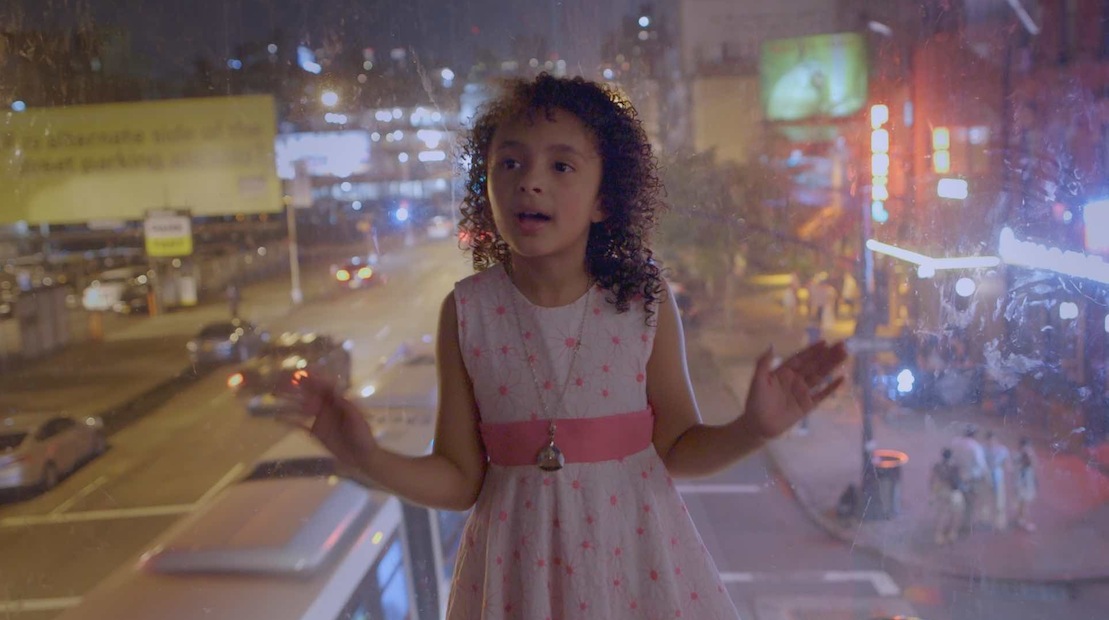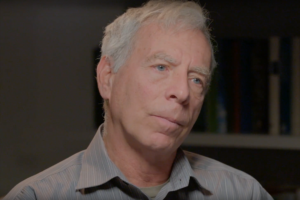Marc Levin, an independent film producer and director, has spent decades examining social justice issues in his award-winning documentaries. HBO Documentary Films’ “Class Divide” is the final film in a trilogy exploring how economic forces impact everyday people from Levin and partner Daphne Pinkerson. “Class Divide” looks at growing inequality in New York City and its profound impact on schoolchildren in the Chelsea neighborhood, where public school kids from the projects look across the street as the privileged sons and daughters of the wealthy attend Avenues: The World School, an $85 million for-profit facility with a yearly price tag of $45,000.
Young people from both sides of the street share their thoughts on a world in which rewards seem arbitrary and natural curiosity pushes them to look past the barriers erected by America’s increasingly rigid class structures. Levin, along with Pinkerson, shares the surprising revelations that emerged in the making the film. “Class Divide” will be shown on HBO in autumn, 2016, and will be screened at New York’s IFC Center from April 13th through April 19th.
Lynn Parramore: Your film shows how people can live and learn in the same community, and yet inhabit wildly different realities. Rosa, age 8, can point from her window at the Elliot-Chelsea Houses, a housing project, to a sprawling upscale complex on the other side of the street “where the rich people live” — a different world where schooling, expectations, and choices are determined by money and connections. How are America’s educational policies affecting the vast divide Rosa so easily perceives?
Marc Levin: It’s a big question, and a little beyond my expertise, but there are a lot of well-intentioned and very smart people who are trying to answer your question. There’s this new book, ( The Prize: Who’s In Charge Of America’s Schools), that just came out on the Newark experiment to save failing schools, with Facebook investing $100 million. We were in Newark to do “Brick City” (a docu-series on the Sundance Channel) and look at the charter school movement and where public education is going.
What relates to our film, I think, is what people have learned, or at least what Zuckerberg claimed that he learned from the Newark experience. I think we saw this in Chicago, too, where we did “Chicagoland” (an eight-episode documentary series for CNN) a year and a half ago, where the battle over public education is front and center. One lesson is that as well-intentioned, innovative, and creative as the ideas can be, if they’re just top-down, without a buy-in by the stakeholders, from the kids to their parents, to the community, and to the teachers, they’re doomed. It’s relevant to this story also, because here you have this class divide, but you see the beginning of something—you have the kids starting to bridge the gap on their own, just intuitively, and the institutions follow them. It’s amazing what’s happened in the wake of this film. We’re seeing Avenues and community groups starting to run a whole series of different projects and programs that are integrating the community in a new way and bringing in a lot of different stakeholders in a way that wasn’t apparent before.
Daphne Pinkerson: Hudson Guild (a community-based social services organization in Chelsea) and Avenues have been collaborating on a variety of projects. Hudson Guild has a range of services — they have a lot of services for seniors over there and the kids from Avenues went to hear the Spanish-speaking older adults talk about their lives and then the kids created monologues based on what they learned.
LP: You bring kids from different backgrounds together for the purposes of the film, but it sounds like you’re saying that you were actually looking at something that was already beginning to happen with the kids wanting to reach across that divide. Is that the case?
ML: I think certainly for Yasemin, who is a young woman from Avenues in the film, it was something she was thinking about. We just happened to appear at the right moment and amplify what was already happening with her and I’m sure some of her friends and colleagues, and also with Juwan on the other side. I think the desire for connection was there; it was the question of how. The film hasn’t even gone on HBO yet, but just already this fall (2015), showing it in festivals, etc, it’s amplified that phenomenon to the point where all of a sudden, the institutional stakeholders and others are following the kids’ lead.
There’s a big gathering that’s happening at Avenues on the whole future of education and how to not make it ghettoized because that is one of the issues with our education system. As you see in the film, the system is becoming more and more divided by class so that people who have the means or live in wealthy communities where their public schools can be funded by the taxpayers are moving ahead. Everyone else is falling behind.
LP: It was interesting how several of the black people interviewed in the film said that they thought economic class was a bigger factor in the unfairness they see than race. What do you make of that? Did that surprise you?
ML: Yeah, it did!
DP: Remember we’re talking to people who are in Chelsea, which is kind of a vanguard neighborhood. It’s kind of a bohemian area with a mix of people. So we’re not talking about Ferguson here.
ML: I’ve lived in this neighborhood for 40 years, and I agree with Daphne that it’s kind of a vanguard, progressive neighborhood and that there’s always been a mix. The gay community has been part of that. But there’s the internationalization, too. It’s seeing people of all races and colors, but some of them have got money. The kids are seeing that right in front of their eyes. Right across the street there are some high-profile celebrities who have got their kids in the Avenues school (they’re not in the film). There are people from all different kinds of backgrounds. So the kids are being exposed to all this. Hyisheem (from the Elliott-Chelsea Houses) says in the film, “Hey, if I went up to an African-American doctor or lawyer who had gone to an Ivy League school and done really well, he’s going to look at me the same way someone else is going to look at me, as a kid from the projects.”
LP: That’s really striking. Kind of suggests that we’ve at least made some progress on race in America, but it seems we’re moving in the other direction when it comes to economic disparities.
ML: That’s true.
LP: Several of the well-off kids you depict give the sense that they don’t think the system that has rewarded them so richly is legitimate. We often think about what inequality does to kids with less, but what negative impact does it have on kids with more resources?
ML: I would say yes, and that for me, that was the biggest revelation of the film. The common ground between these two sides of the street is a shared anxiety — where do I fit into this incredibly high-speed, changing world? For kids of privilege, they know they have privilege and money but they know they’re competing, not only amongst other private schools in New York City, but against kids in China, India, Korea, Russia, all over the world. They are very aware of that. They’re also aware that it’s not as easy, possibly, for their generation to attain some of the successes that their parents have. That puts a lot of pressure on them.
LP: So they’re not quite sure they’re going to stay on the highest rung.
ML: That’s right. And the kids across the street, obviously, they’ve got a struggle because they don’t have the money and the means. But I think they also see these rapid changes where even the social net that once was taken for granted, whether it’s Section 8, unemployment, certain benefits, that’s no longer guaranteed.
They’re seeing the safety net basically being dismantled. So you have this unique phenomenon where that is actually one of the things they share besides popular culture.
LP: At one point in the film, an Avenues student says, “I’ve been wanting to go to Harvard since I was 5.” Elements like this put me in mind of Michael Apted’s landmark “7 UP” documentary series, which delved into the lives of of several British children across class lines and then re-interviewed them every seven years. The series is a sobering statement on how much in life is determined by the economic class you are born into — something that is increasingly true in America. Was his work an inspiration? Have you thought of doing a follow up with these kids in your film in years to come to see how things turn out?
ML: Definitely. I happen to know Michael Apted a little and obviously I think that “7 UP” is one of the remarkable series over time. Certainly I’ve thought about it. I think it would be fascinating to come every ten years to try to find where these kids end up. What I would add to that, and what would be kind of unique and wasn’t in “7 UP,” is that I would make the community a character. You have the ability to see how a neighborhood changes over time in just this little area where we are here. So not only could we see where Rosa is at when she’s 18, or Yasmin when she’s 28, but we could see what happens when Chelsea’s Hudson Yards ( the largest private real estate development in U.S. history) is up and there’s a whole new city right out my window here. This whole neighborhood, what is it like? How has it changed? We could be looking at the characters, but also the community.
LP: Obviously the kids in this film want to see changes in a society they are just beginning to engage with, and they yearn to evolve beyond the inequalities they see. Will the system let them? What changes need to happen to make change possible?
ML: Every generation has got a battle. I came of age in the 60s; obviously, there was a huge battle — a cultural battle, a political battle, a revolution. I think for this generation, the income inequality is at the top of the list, with, obviously, climate change. This is part of what these kids have to be engaged in and figure out. We never get there. For each generation there’s a new struggle. What’s fascinating is how articulate these young people are — I think back to when I was in high school in the 60s — I’m not sure I had the knowledge or was as articulate on a lot of these subjects as these kids are. I’m optimistic that they’re not running away from the challenges. But there are a lot of new twists and turns that we didn’t face. I can’t give you the answer but I do have hope that these kids are getting engaged and realizing that this is part of the challenge they face and they’ve got to figure it out.







